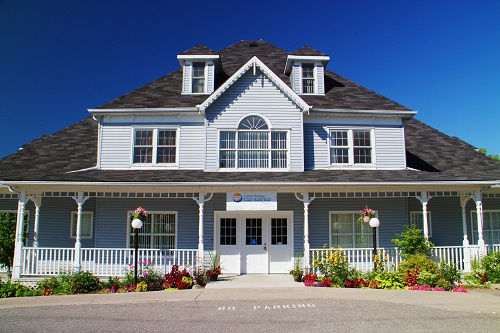Money and benefits for doctors willing to move to rural communities in Ontario
TORONTO – You know, money is tempting. So, to solve the problem of shortages of doctors and nurses in Ontario’s small communities, local governments are stretching their coffers, offering upfront money and benefits to health workers willing to relocate, as The Canadian Press reports in an article today, with some examples.
The most sensational (example) arrives from of Huntsville, where local authorities offer a bonus of $80,000 to any family doctor who agrees to work in the city for at least five years. Not only that: several restaurants in the area offer $500 gift certificates to incoming doctors, a car dealership offers a free car for one year and a resort in the area gives a free membership to a golf club (to see directly the whole offer, click here). There is only one “obstacle”: do not reside in the surrounding municipalities, because Huntsville does not want to “steal” doctors from its neighbors. In fact, all the municipalities are in the same difficult situation, so much so that numerous other communities are using similar tactics.
Blanche River Health in Kirkland Lake, a municipality in eastern Ontario, is offering $2,000 to anyone, from anywhere in the world, who successfully refers a doctor or nurse to work at the hospital (to view the offer directly, click here). In Dryden, Ontario, a city more than 1,700 kilometers northwest of Toronto, the regional health center’s “medical bonus” provides $37,500 for help with relocation expenses. Combined with separate provincial grants, doctors moving to Dryden could be awarded up to $155,000 for a four-year commitment (to view the offer directly, click here).
But do these initiatives work? Yes, according to Bob Stone, the local councilman who spearheaded Huntsville’s new bonus initiative. The plan, approved by the board in May, hopes to attract ten doctors. Two months after approval, seven doctors have already expressed interest and many are close to signing contracts. “It’s working, and we’re excited: as soon as we actually sign a contract, we’re going to tell the whole world” Stone said, noting that Huntsville faced an urgency to act. With waiting lists growing and many current doctors about to retire, nearly a third of the city’s 21,000 people are at risk of not having a family doctor. Under the terms approved by the board, each doctor who takes over an existing practice receives $60,000, while doctors who leave a new practice receive $80,000. The funds come from the city budget, Stone said. “We’re giving them that money upfront because that’s why they’re moving here” he said, noting that the bonus is tied to a five-year commitment.
Jorge VanSlyke, president and CEO of Blanche River Health, which serves Kirkland Lake, said its community referral program has led to growing questions about available opportunities, but noted that it’s too early to say whether the program will work. “Whether it will be a success or not is not yet known, but our goal right now is that no stone is left unturned when it comes to our recruiting effort”.
Ian Culbert, executive director of the Canadian Public Health Association, said the growing role of incentives to attract doctors (which have existed for decades in some rural and northern communities, but have seen a notable acceleration since the pandemic) is putting communities considered less desirable in “an impossible situation”. And he doesn’t blame communities for offering bonuses, given the responsibility of providing health care to residents, but he says there are better ways to address the rural doctor shortage, including canceling student debt by tying it to years of service in a community, or introducing medical students to the benefits of rural work through short-term programs while attending medical school. Furthermore, he believes the Province should do more to fill the gaps caused by per capita health financing.
According to the president of the Ontario Medical Association, Dominik Nowak, the first step should be to address the general shortage of family doctors: one in five Ontarians does not have a family doctor and soon it could be one in four. This shortage has set off a chain reaction that has seen fewer people receive an early diagnosis for serious illnesses, ultimately putting more pressure on hospitals.
Meanwhile, the “incentive packages” are becoming more and more elaborate: in the Municipality of Marmora and Lake, about 200 kilometers east of Toronto, doctors are offered – among other incentives: click here for full details – riverfront accommodation and clinical spaces at no cost. Not bad…
In the photo above, the Marmora Medical Center (photo: marmoraandlakedoctorrecruitment.ca)



